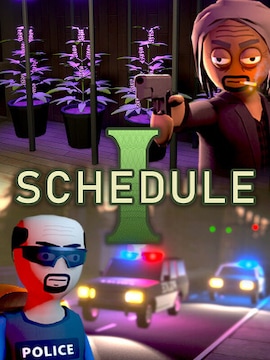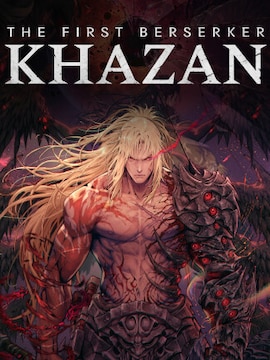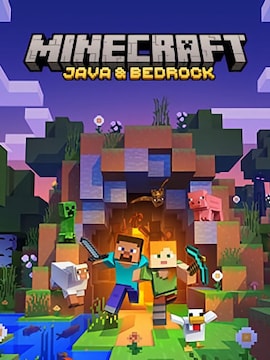BioWare has been the iconic purveyor of all things RPG for years, at least as far as video games go. Between the prolonged collapse of Interplay and the rise to prominence of Obsidian Entertainment, BioWare was nearly unchallenged in their corner of gaming industry.
From the legacy of Baldur’s Gate and its sequel, through the three-dimensional environments of Neverwinter Nights, to their two original IPs: Mass Effect (2007) and Dragon Age (2009), BioWare has done a lot of good work to warrant being associated with the role-playing game genre.
While Mass Effect is a high-flying space adventure, Dragon Age is set in a more traditional fantasy world. What other games like Dragon Age are there? And what characterizes an instalment of the DA series, in the first place? Let’s find out.
| Name | Release | Genre | Developer | |
|---|---|---|---|---|
 | FINAL FANTASY XVI | 2024-09-17 | Adventure | SQUARE ENIX |
 | Tyranny | Deluxe Edition | 2016-11-10 | Adventure | Obsidian Entertainment |
 | GreedFall | 2019-09-10 | Action | Spiders |
 | Baldur's Gate 3 | Deluxe Edition | 2023-12-08 | Adventure | Larian Studios |
 | Baldur's Gate: Enhanced Edition | 2013-01-16 | RPG | Beamdog |
 | Baldur's Gate II: Enhanced Edition | 2013-11-15 | RPG | Beamdog |
 | Baldur's Gate 3 | 2020-10-06 | RPG | Larian Studios |
 | Pillars of Eternity - Definitive Edition | 2015-03-26 | RPG | Obsidian Entertainment |
 | Pillars of Eternity II: Deadfire | 2018-05-08 | RPG | Obsidian Entertainment |
 | The Witcher 3: Wild Hunt GOTY Edition | 2015-05-18 | RPG | CD PROJEKT RED |
 | Mass Effect Trilogy | 2012-11-06 | Adventure | BioWare |
 | Mass Effect Legendary Edition | 2021-05-14 | RPG | BioWare |
 | Divinity: Original Sin - Enhanced Edition | 2015-10-27 | Adventure | Larian Studios |
 | Divinity: Original Sin 2 | Definitive Edition | 2017-09-14 | Adventure | Larian Studios |
 | Pathfinder: Kingmaker - Enhanced Plus Edition | 2018-09-25 | RPG | Owlcat Games |
 | Pathfinder: Wrath of the Righteous | 2021-09-02 | RPG | Owlcat Games |
The BioWare experience
One of the key elements of a BioWare RPG experience are memorable companions joining the player-controlled characters. NPCs such as Mordin and Wrex from Mass Effect, or Varric and Morrigan from Dragon Age are remembered by almost everyone who played these games for reasons ranging from acerbic wit to a plucky personality. Without an emphasis on interactions between the characters, BioWare games would have been very different.
The second crucial aspect is story-heavy experience. BioWare always makes sure to give the players a lot of context for the combat sequences. Conversations and interactive cutscenes make up the bulk of the game, providing the base for emotional investment and making the world more believable.
Finally, there is a tactical aspect of combat. So far nearly all BioWare games, especially the Dragon Age series, give the player the tools to give orders (attack, relocate, use ability) to the protagonist’s squadmates. The degree of control changes from game to game, but it peaked in Dragon Age: Origins.
The Dragon Age experience
The Dragon Age franchise is a series of games set in a fantasy setting fraught with ideological and political strife. For various reasons, their protagonists are granted a significant amount of influence and occasionally a unique set of skills allowing them to properly address the crisis. There is a lot of lore attached to the setting, most of it, like background information, available through the in-game codex.
It’s also worth noting that each of the three (at the moment of writing) Dragon Age games are quite different in their mechanics.
- Dragon Age: Origins — a traditional party-based tactical RPG in a 3-dimensional environment. It lets you set up complex orders for each character to automate the usage of abilities and potions, or prioritizing enemies.
- Dragon Age 2 — DA2 brought action closer to the ground, ditching the bird’s eye view from Origins, and made combat more dynamic and action-based.
- Dragon Age Inquisition— exists in-between Origins and DA2. It allows the players to play it like an action-RPG, but also has a number of provisions for people who enjoy a more tactical approach.
Given the baseline, now we can move on to discussing games which offer an experience similar in some aspect to what BioWare has given us in DA.
Baldur's Gate 3
| Release date: | 2023-12-08 |
| Developer: | Larian Studios |
| Available on: | Windows, PlayStation 5, macOS, Xbox Series X/S |
| Most similar to: | Origins, Inquisition |
This is something of a double-dip, because not is Baldur’s gate already featured, but there’s also another Larian Studios game on the list, but BG3 is enough of its own beast to merit including.
It’s turn-based tactical battles can easily compete with Origins’ real-time battles, and BG3’s locale-specific campsite is an excellent, immersive evolution of DAO’s camp, including talkative companions.
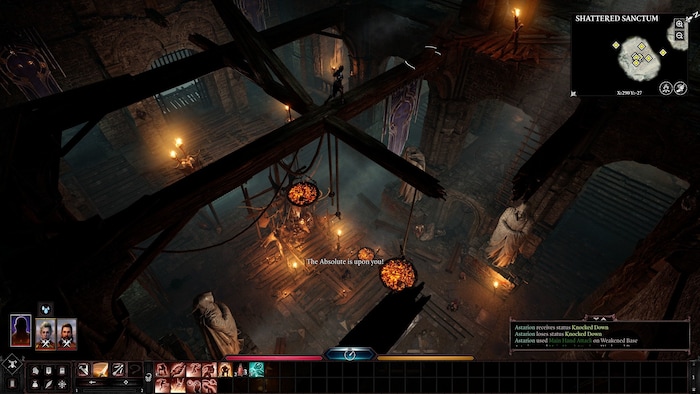
On the other hand, BG3 and Inquisition share a sense of an epic, high fantasy adventure not unlike a fun, lengthy TTRPG campaign without losing the edge of violence and hard (or harsh) choices. The aforementioned companions are also closer to Inquisitions: a varied, opinionated bunch of weirdos, all of whom are going to have thoughts on your decisions. It’s easily one of the best cRPGs ever made.
GreedFall
| Release date: | 2019-09-10 |
| Developer: | Spiders |
| Available on: | Windows, PlayStation 5, macOS, Xbox Series X/S |
| Most similar to: | Dragon Age 2, The Veilguard |
Greedfall doesn’t necessarily dance among the cRPG stars, but it’s still a great game.
With a story featuring an interesting central tension, cool companions, and a dynamic combat system which will appeal to any fan of Dragon Age who isn’t keen on tactics and would prefer a little bit more action. It was received well enough to earn itself a prequel, currently in Early Access, with a planned 2025 launch.
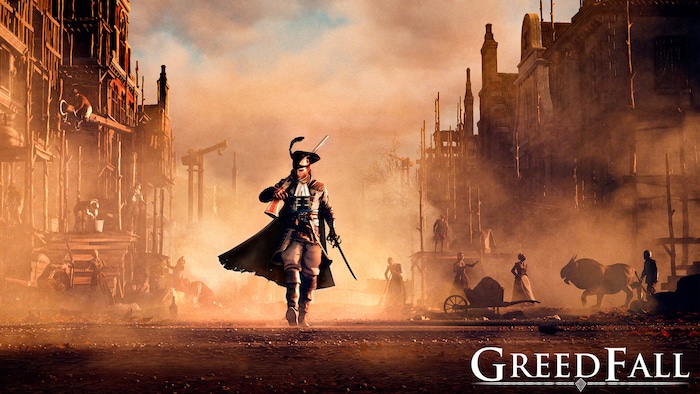
You’re playing as De Sardet, a noble sent to a recently colonized island Teer Fradee in search of a cure for a devastating disease. Combat is mostly action-oriented, with a tactical pause for when you want to pick an ability get a moment to breathe during a particularly hectic encounter. Not unlike The Veilguard, you’re also able to take up to 2 (out of 5) companions to help you out and share their opinions.
Tyranny
| Release date: | 2016-11-10 |
| Developer: | Obsidian Entertainment |
| Available on: | Windows, PlayStation 5, macOS, Xbox Series X/S |
| Most similar to: | Origins, Inquisition |
Obsidian Entertainment’s Tyranny is a game which should have been more popular than it was.
A rare cRPG devoted to playing an evil character, where the “good” choices are the outliers, it presented an interesting setting, great magic system, and several distinct paths based on the faction you ally yourself to. Although it’s a smaller game than most Dragon Ages, it does have much in common with them.
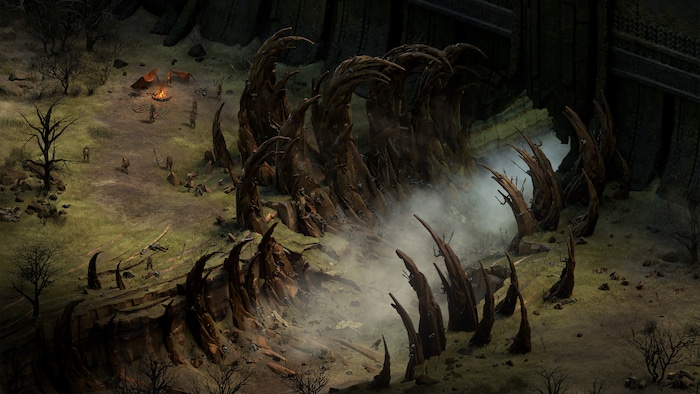
The Fatebinder is something of a Judge Dredd for Tyranny’s Bronze Age-inspired fantasy setting. They’ll spend a lot of time dealing with factions, and exploring plot-oriented locations, gathering allies, power, and enemies as you go. There is a great degree of replayability, because the different story branches can be very different, and because getting to end credits doesn’t take a hundred hours.
Final Fantasy XVI
| Release date: | 2024-09-17 |
| Developer: | SQUARE ENIX |
| Available on: | Windows, PlayStation 5, macOS, Xbox Series X/S |
| Most similar to: | The Veilguard |
While Final Fantasy XVI’s open-world structure is at odds with Veilguards more restricted format, both games have something important in common: they mark a definitive shift towards an action game format for their respective series.
Final Fantasy XVI went the extra mile by getting a combat designer for Devil May Cry 5, Ryota Suzuki, to work on the nuts and bolts of the hack’n’slash action.
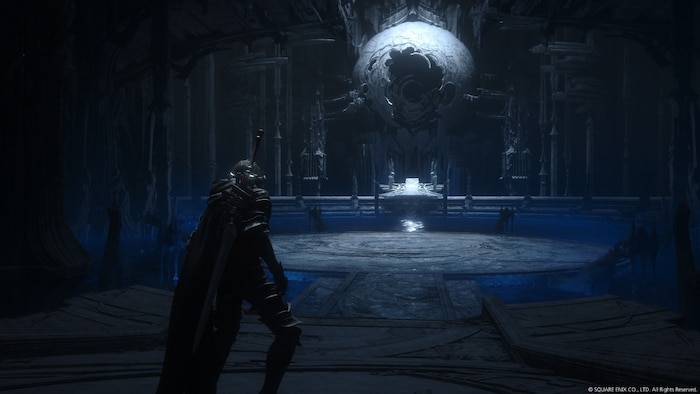
Your character is a man called Clive, who, due to various plot shenanigans, gets tangled up in a magical and political plot. The story reaches deep into the worldbuilding of FF16’s dark fantasy setting, where naturally gifted magic users face heavy persecution and exploitation, not entirely unlike the fate of mages in DA’s Thedas, although with way less questionable blood magic.
Baldur's Gate II
| Release date: | 2013-11-15 |
| Developer: | Beamdog |
| Available on: | PC |
| Most similar to: | Dragon Age: Origins |
Baldur’s Gate II to this day remains one of the most beloved BioWare games, and the Canadian studio created Dragon Age: Origins with that game as a clear inspiration.
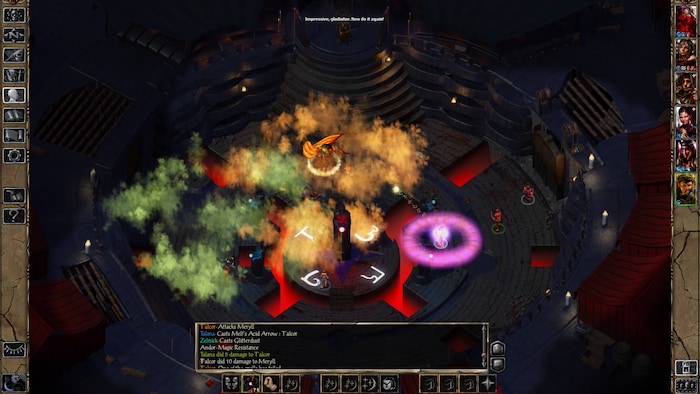
BGII’s story takes place in the Forgotten Realms setting, familiar to everyone who knows any edition of Dungeons & Dragons, and is a direct sequel to Baldur’s Gate 1. It takes the player on an epic journey across the Sword Coast in search of the protagonist’s destiny (no spoilers). It also allowed the player to import a character from the previous game in the series, which laid the groundwork for the save import systems in Dragon Age and Mass Effect.
Memorable companions, many regions to visit, and a plot of epic importance make Baldur’s Gate II a clear spiritual predecessor to DA: Origins. It’s also a clear point of reference for many modern role-playing games.
The Pillars of Eternity series
| Release date: | 2015 (PoE1), 2018 (PoE2) |
| Developer: | Obsidian Entertainment |
| Available on: | PC, PlayStation 4, Xbox One, Nintendo Switch (only PoE2) |
| Most similar to: | Dragon Age: Origins |
Where Dragon Age: Origins wanted to reinvent the classic Infinity Engine RPGs with new systems and presentation, Pillars of Eternity embraced them entirely, complete with an isometric camera and setting resembling a grim and weird version of D&D’s Forgotten Realms.
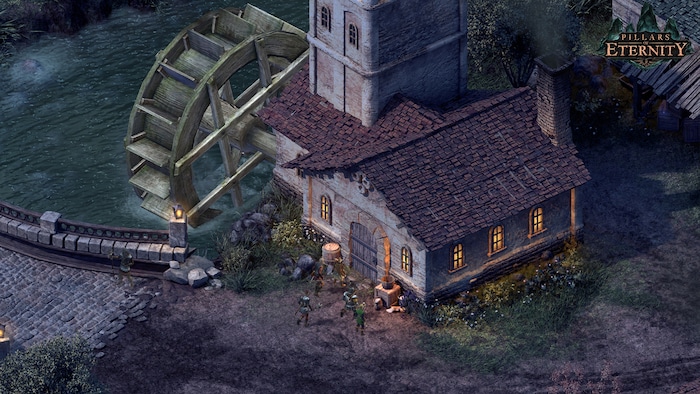
The second game in the series, Pillars of Eternity 2: Deadfire implements a system of orders similar to those from DA: Origins. The companions joining the player character have their own agendas and stakes in the events unfolding around the world, although PoE’s setting is more downbeat and less heroic than Dragon Age’s. Obsidian’s games are also much more text-heavy, more suitable for people who enjoy reading a lot.
The Witcher 3
| Release date: | 2015-05-19 |
| Developer: | CD PROJEKT RED |
| Available on: | PC, PlayStation 4, Xbox One |
| Most similar to: | Dragon Age: Inquisition |
The Witcher 3 shares some similarities to DA: Inquisition (released a year before). Both games feature several separate open-world areas for example. Dragon Age has more of them but The Witcher 3’s are larger, and more populated with NPCs and activities.
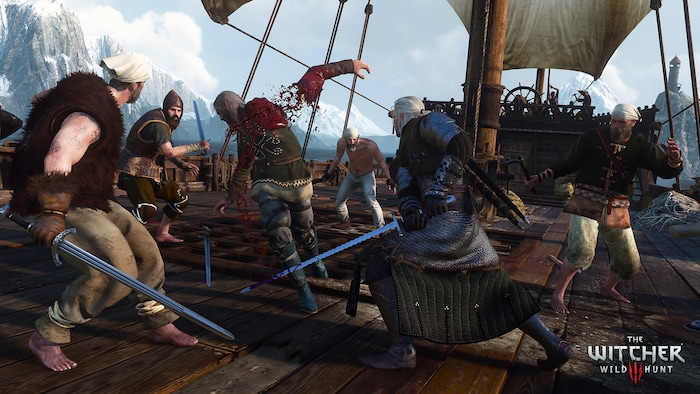
There are also interactive cinematic cutscenes, but a better engine lets the characters look much better and have more detailed animations. The Witcher 3 story is also more personal than the high-level world-saving campaign of Inquisition.
The biggest difference lies in combat: Inquisition has a half-tactical style, whereas The Witcher plays like an action game. It requires more reflexes than tactical thinking, even if preparing for certain fights may turn a deadly encounter into a merely difficult one.
The Mass Effect series
| Release date: | 2021-05-14 |
| Developer: | BioWare |
| Available on: | PC, PlayStation 3, PlayStation 4, Xbox 360, Xbox One |
| Most similar to: | Dragon Age 2 |
Mass Effect was the point of origin for the mechanics later used in Dragon Age 2 in an attempt to recreate ME’s success.
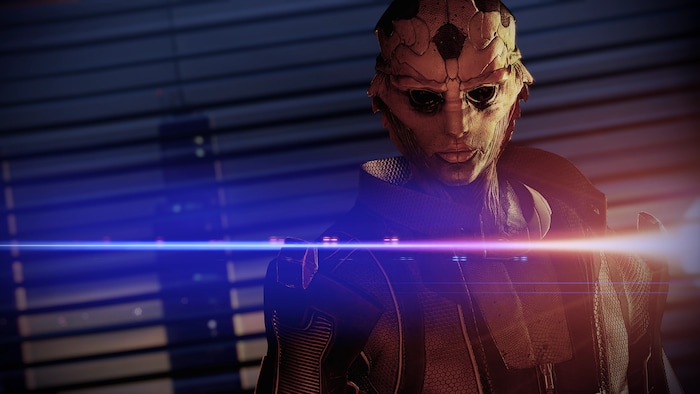
Both use the ‘conversation wheel’ to allow the player to make story-changing decisions and feature dynamic combat systems: while DA2’s was a semi-tactical hack’n’slash, ME is a third-person shooter. Although ME is a science fiction series and deals with a cosmic threat, the playable character, Commander Shepard, provides a personal perspective on the events.
ME is a brilliant trilogy, and while contentious, the follow-up ME: Andromeda is an interesting take and features a more open-world structure, as opposed to mission-based core trilogy.
Divinity: Original Sin II
| Release date: | 2017-09-14 |
| Developer: | Larian Studios |
| Available on: | PC, PlayStation 4, Xbox One |
| Most similar to: | Dragon Age: Origins & Inquisition |
If you’ve played DAO with mages in your team, you may be familiar with elemental combos: incredibly powerful effects achieved through combining spells. DA2 and DA: Inquisition moved towards cross-class combos, letting one class exploit statuses inflicted on the enemies by another class.
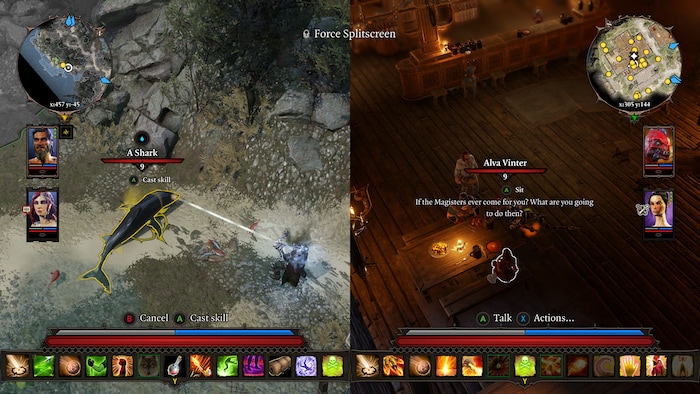
Such interactions are an integral part of combat (turn-based, not real-time-with-pause like in DA) in Original Sin 2, and virtually every type of build (progression is classless, unlike Dragon Age) can create or exploit them in some way.
If you like the designs in Dragon Age: Inquisition, you may also like how the characters and equipment looks in DOS2, as both games embrace the high fantasy aesthetic. Original Sin 2 has the technical edge, since it came out a few years after Inquisition.
Pathfinder: Kingmaker
| Release date: | 2018-09-25 |
| Developer: | Owlcat Games |
| Available on: | PC |
| Most similar to: | Dragon Age: Origins & Inquisition |
Kingmaker was originally a campaign released for the Pathfinder tabletop role-playing game, itself an adaptation of the rules of the 3.5 edition of D&D. The video game adaptation by Owlcat Games needed to make it work on PC.
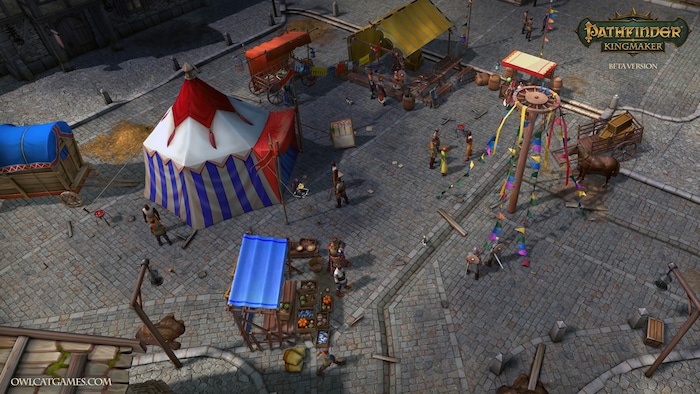
The idea is that in Kingmaker you can become a baron, which entails some management: assigning advisors, deciding how to develop your city, etc., while also going on adventures to address crises and find gold or other treasures.
Its tactical, real-time with pause aspect will certainly appeal to those who enjoyed the mechanics of Dragon Age: Origins. Meanwhile, those who liked the “running an organization” vibe of DA: Inquisition will likely relish governing their own barony.
Gather your party
Although that concludes this list, there are at least a few role-playing games released every year, especially ever since the release of Divinity: Original Sin, and Pillars of Eternity. Not all of them are similar to Dragon Age, but you still may like them!
Examples that didn’t make this list include turn-based bizarre Torment: Tides of Numenera; open-world sandbox The Elder Scrolls V: Skyrim; and the highly conceptual urban fantasy Disco Elysium.
We hope we helped you find a good game to play after you’re done with the installment of Dragon Age that caught your attention, and gave you some ideas about what to play next

